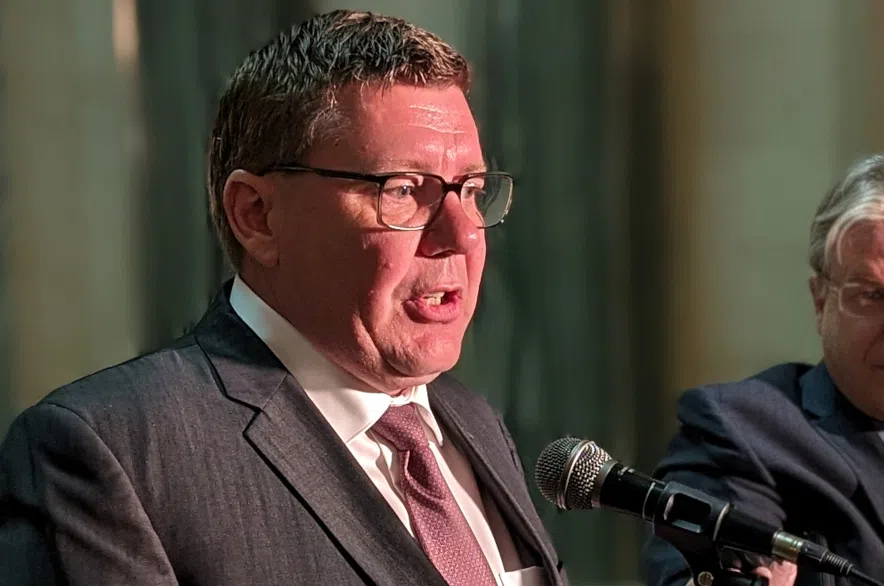Almost as soon as the federal budget was mentioned to him Tuesday afternoon, Premier Scott Moe pointed straight at the deficit of $39.8 billion.
“That’s just a little bit more than I think we’re willing to bear, and (it’s) very unfortunate that this is a government that just won’t even try (and) won’t even attempt to curtail some of the spending and the investments that they’re making and try to at least get close to balancing the books federally,” said Moe.
The federal government tabled its budget for the 2024-25 fiscal year Tuesday afternoon, including a lot of new spending and paying for at least some of that spending with things like an increase to the capital gains tax but otherwise increasing the deficit.
The government’s forecast also went out to 2029 but didn’t have the government getting back to a balanced budget.
When Moe was asked what he thinks should be done to reduce the federal deficit, he talked about restricting federal spending and removing some of the things he thinks are hindering investment in the country that could grow the tax base. He pointed to environmental regulations like the carbon tax and clean fuel standards.
“All of that is making for an uncertain investment environment which is really challenging the opportunity for us to attract private investment into our nation,” said Moe.
Moe’s government was looking for two things in the federal budget. The first was an increase to municipal infrastructure funding not tied to housing.
“So that we can actually have municipalities that can actually invest in the priorities that are important to them for the true growth of our communities,” he explained.
The second was a removal of the carbon tax. Neither of the asks were included in the budget.
“A swing and a miss on both fronts, I would say,” quipped Moe.
The premier did point out a good thing he saw in the federal budget: A plan to return five years of carbon tax payments to small businesses.
“Finally, after they taketh away from Saskatchewan small businesses, they’re going to giveth some of their money back,” said Moe.
Disability benefit
The federal government also rolled out a plan to bring in a federal disability benefit to help people living in poverty.
The federal government estimates that 600,000 lower-income people with disabilities in Canada will be eligible for up to $2,400 a year, starting in July of next year.
Jeff Redekop, the executive director of Income Assistance Service Delivery, said the province is gathering more information from the federal government right now, so he couldn’t say whether the provincial government will claw back this benefit from SAID clients.
However, Moe said the intention would be not to claw it back.
“When there was a payout in a number of Indigenous communities, it was called, I think, a ‘cows and plows’ payout. We had made some decisions that allowed those that maybe on the SIS program to not have that clawback of those funds,” explained Moe.
“Our intent would be that it would not be (clawed back), that it would be an additional benefit to those that are living with a disability in our communities.”











